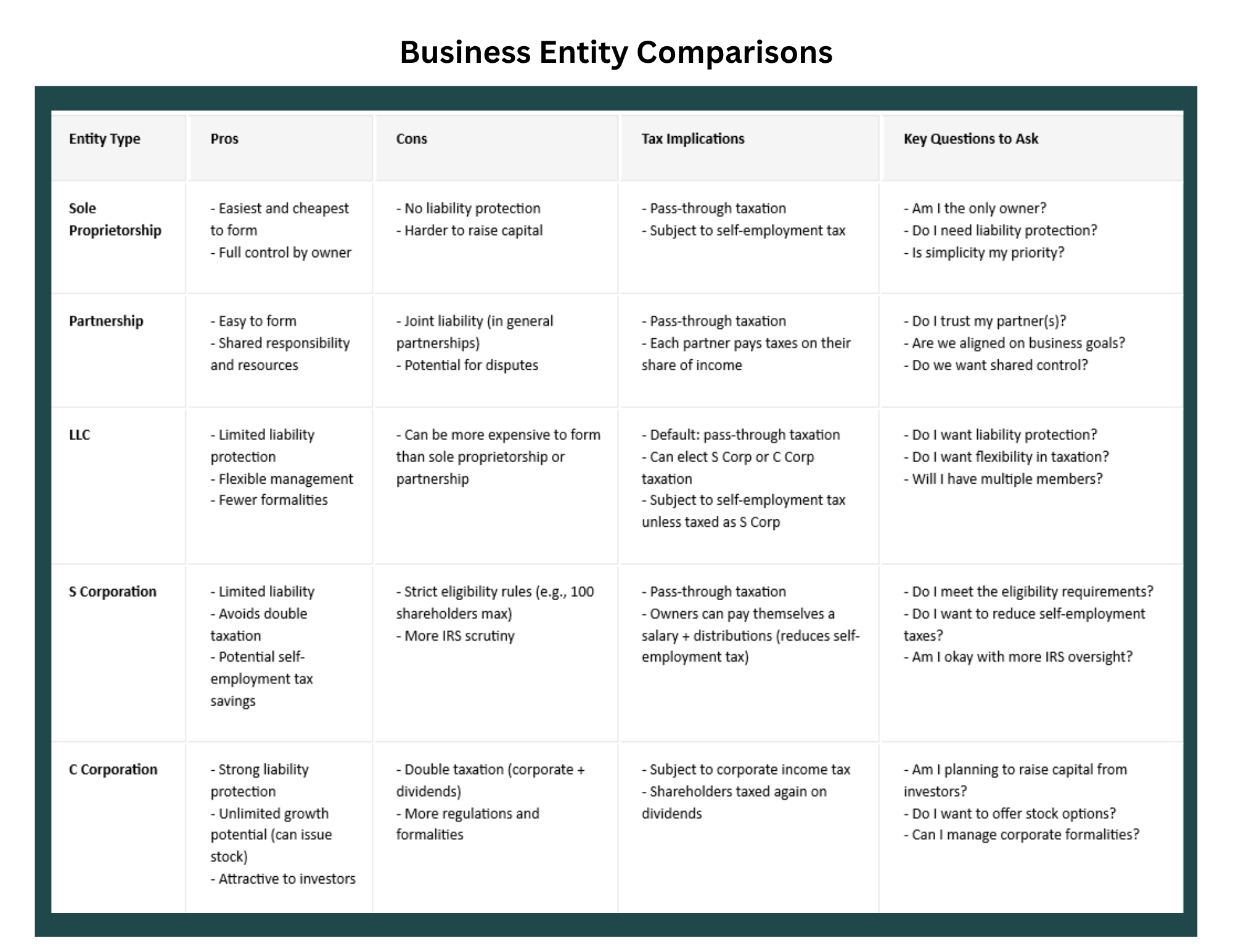Choosing a Business Entity
Choosing the right business entity is like picking the foundation for your house—it affects everything that comes after.
Write your awesome label here.
Write your awesome label here.
Lesson series

There's no "right" answer.
“What happens if someone sues me—can they come after my personal stuff?”
Nick
“Can I change my business type later if I pick the wrong one now?”
Sue
“What if I want to bring in a friend or partner later—should I plan for that now?”
Maria
⚠️ Common Mistakes in Choosing a Business Entity
Choosing the right business entity is like picking the foundation for your house—it affects everything that comes after.
If you choose the wrong one, you might pay more in taxes, miss out on legal protections, or struggle to raise money later. But if you choose the right one, you can save money, protect your personal assets, and set yourself up for smooth growth.
It doesn’t have to be complicated—but it is important.
- Not Considering Liability Protection - Many choose a sole proprietorship or general partnership for simplicity, not realizing they’re personally liable for business debts and lawsuits.
- Ignoring Tax Implications - Some owners don’t understand how different entities are taxed (e.g., double taxation for C Corps, self-employment tax for LLCs) and miss out on potential savings.
- Choosing Based on Cost Alone - Opting for the cheapest or easiest setup (like a sole proprietorship) without considering long-term needs can be costly later.
- Failing to Plan for Growth - A sole proprietorship or partnership might work early on, but may not scale well if you plan to raise capital, bring on investors, or issue stock.
- Overlooking Compliance Requirements - Corporations and S Corps have strict formalities (e.g., annual meetings, minutes, filings). Failing to follow them can lead to loss of liability protection.
- Misunderstanding S Corp Eligibility - Some try to elect S Corp status without meeting the requirements (e.g., too many shareholders, non-U.S. owners, or ineligible types of shareholders).
- Not Consulting a Professional - Skipping legal or tax advice can lead to choosing an entity that doesn’t align with your business goals or personal financial situation.
- Assuming One Size Fits All - What works for one business may not work for another. Each entity has trade-offs depending on industry, revenue, ownership structure, and risk tolerance.

